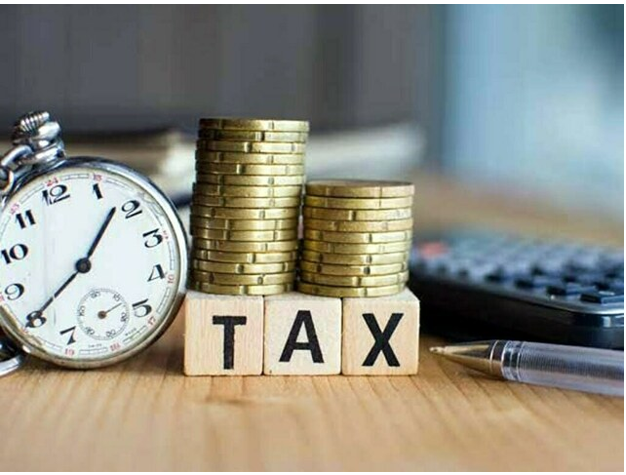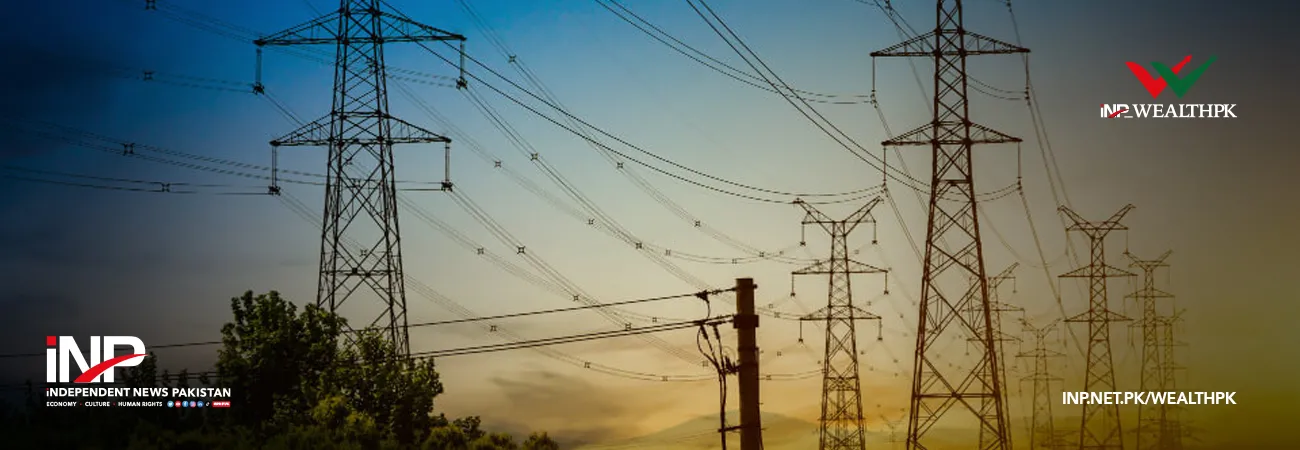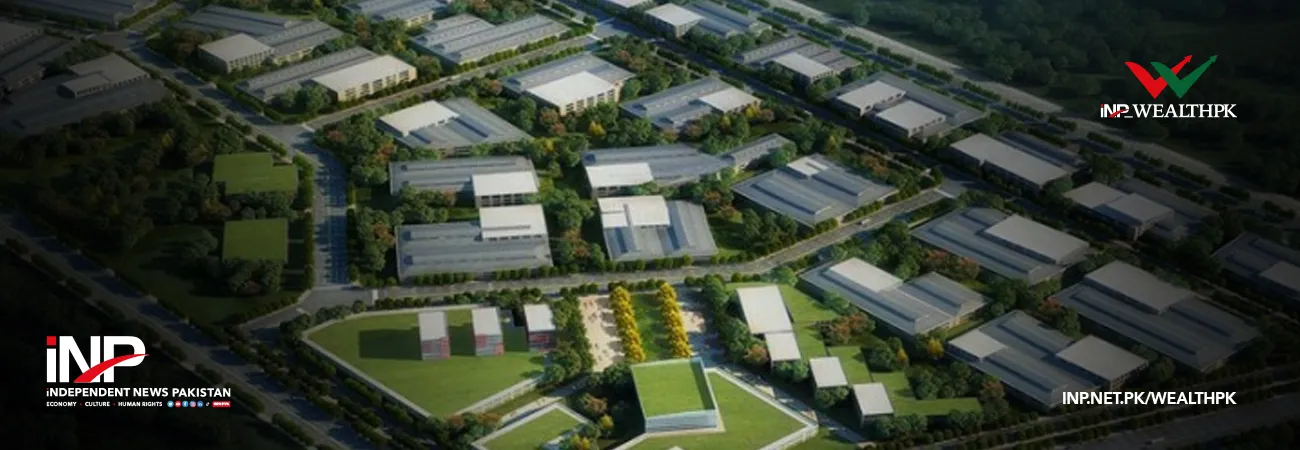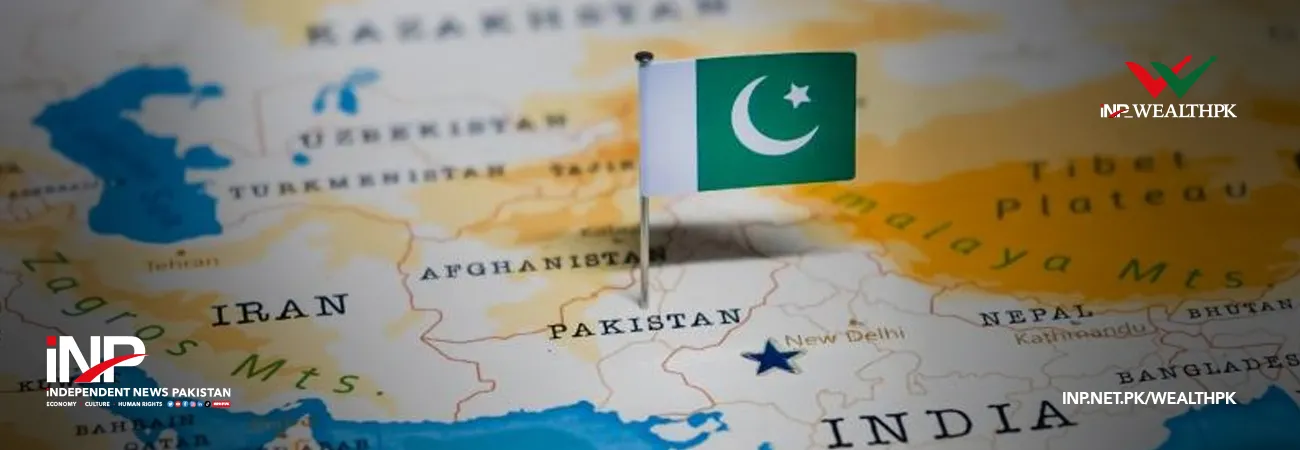آئی این پی ویلتھ پی کے
Moaaz Manzoor
Experts cautioned that the persistent reliance on indirect taxation and punitive cash transaction policies may erode financial inclusion, deter industrial investment, and blur Pakistan’s path toward sustainable economic growth, reports WealthPK.

The federal government has projected total revenue receipts of Rs19.28 trillion for the fiscal year 2025-26, marking an increase of over Rs2.47 trillion from the revised estimates of the previous year. Of this, tax revenue makes up Rs14.13 trillion — split between Rs6.9 trillion in direct taxes and Rs7.23 trillion in indirect taxes, reinforcing concerns about the regressive nature of the tax structure.
Non-tax revenues are estimated at Rs5.15 trillion, heavily reliant on petroleum levies and the State Bank’s surplus profits. Meanwhile, to bridge the gap between revenues and total expenditures of Rs23.84 trillion, the government plans to raise Rs5.78 trillion through external borrowing and Rs2.66 trillion via net domestic borrowing. This continued dependence on indirect taxes and short-term debt raises questions about the sustainability of fiscal policy and its broader impact on economic inclusion.
Moreover, the withdrawal of tax exemptions from specific sectors such as solar energy and the former Fata/Pata regions underscores a wider policy shift that, while aimed at tax harmonisation, could spark resistance among stakeholders. Without accompanying structural support, such as concessional financing or institutional strengthening, these moves may create more uncertainty rather than spur compliance. Experts argued that this taxation strategy is likely to worsen financial exclusion rather than improve it.
Speaking with WealthPK, Farid Aliani, a Riyadh-based emerging markets macroeconomic analyst and investment strategist, told WealthPK that “the government’s reliance on indirect taxes and cash penalties is unsustainable.” He explained that such an approach “discourages formalisation, hurts SMEs and exporters, and erodes financial inclusion —especially as cascading taxes inflate input costs.”
He further noted that this strategy is “regressive, disproportionately affecting lower-income groups,” adding that a shift toward direct taxation, value-added exports, and digital financial integration is crucial to ensure long-term economic resilience. The Finance Bill 2025-26’s procedural tightening on cash transactions, coupled with new levies on digital transactions, may also be counterproductive.
While intended to enhance documentation and boost revenue, these steps risk pushing small businesses further into the shadows of the informal economy. According to Aliani, these punitive policies are regressive in nature and may inadvertently penalise those already struggling to integrate into the formal banking and financial systems.
Muhammad Armughan, senior researcher at the Federation of Pakistan Chambers of Commerce & Industry, explained that “one of the most critical barriers to industrial investment in Pakistan is the chronic absence of financial inclusion and the deep-rooted trust deficit between the government and the domestic business community.”
He believed this lack of trust and stability sends a negative signal to foreign direct investors, further weakening Pakistan’s economic positioning. His assertion reflects how macroeconomic volatility, when compounded by erratic fiscal policies, deters both domestic and foreign capital inflows. Armughan further critiques the private sector’s role in this dynamic.
“Pakistan’s business landscape is dominated not by modern industrialists but by traditional family-run conglomerates,” he noted, calling for a shift in mindset from short-term rent-seeking to long-term, competitive positioning within global value chains. He urged both state and private actors to coalesce around a shared vision of “predictability and protection” to enable export-led, resilient economic growth.
While the government’s revenue mobilisation strategy aims to bridge fiscal deficits, its heavy reliance on indirect taxes and financial disincentives may undermine broader developmental goals, particularly financial inclusion and formal sector expansion. If not recalibrated, these fiscal choices risk further entrenching inequality, discouraging investment, and derailing long-term economic transformation.
Credit: INP-WealthPk












